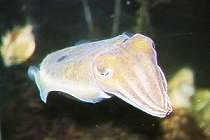
Cuttlefish |
Although the term biodiversity is a relatively new one, the value of maintaining biodiversity is unquestionable.
This is because biodiversity, at the genetic level, species level and ecosystem level, sustains all life on earth and is the reason why we are able to survive.
The diversity of life on earth is essential to maintaining the basic ecological processes on which all life, including human life, depends. Healthy ecosystems of plants, animals and microorganisms, recycle nutrients, transfer energy, dispose of wastes, maintain balance within ecosystems, maintain water quality, disperse seeds, provide food and so much more. |
As well as providing us with fresh air, water, and food, the diversity of life on earth provides medicines and industrial products. In this way, biodiversity supports commercial human activities such as forestry, fisheries, recreation, tourism and agriculture.
Humans also value biodiversity in less commercial ways. We often get great pleasure from visiting unspoiled places, such as national parks, or even feel good just knowing that they are there. Many humans also have great respect for some of the wildlife with which we share the earth. Although our passion for protecting wildlife is often directed towards 'charismatic megafauna', such as whales and dolphins, it is clear that humans will go to great lengths to preserve some wildlife.
In summary, there are four reasons why biodiversity is important to all humans:
- Humans depend on the natural environment for raw materials, such as food and water and by regulating living processes, biodiversity contributes towards a sustainable environment.
- Living things provide humans with a vast range of industrial, agricultural and medicinal products.
- Biodiversity is considered by many humans to be an important natural and cultural resource, to be saved for future generations.
- Finally, and to a growing number of people, most importantly, all living things have the right to exist.
Jewels of the Sea
This last point is worth exploring a little further. It is not just the charismatic mega-fauna (beautiful dolphins and cuddly seals) that deserve our respect and protection. Countless numbers of small, and sometimes less appealing and less-well-known organisms, are of equal value in ecological terms.
We would therefore like to encourage all teachers who develop the theme of marine biodiversity in their classrooms to focus on these less-well-known Jewels of the Sea.
This would include things such as the planktonic life that drifts through the sunlit upper layers of the oceans and is so important to marine food webs. You may also choose to focus on some of the exotic sounding meiofauna, microflora and microfauna that live hidden lives within marine sediments.
One thing will soon become clear. A vast number of species of marine animals and plants still have not been fully investigated by scientists and new species are still to be discovered and described. Areas once regarded as ocean deserts have now been found to be teeming with life. It is unknown what part they play in the ocean ecosystem and therefore it is even more critical that they are conserved.
Next: What can you do?
|